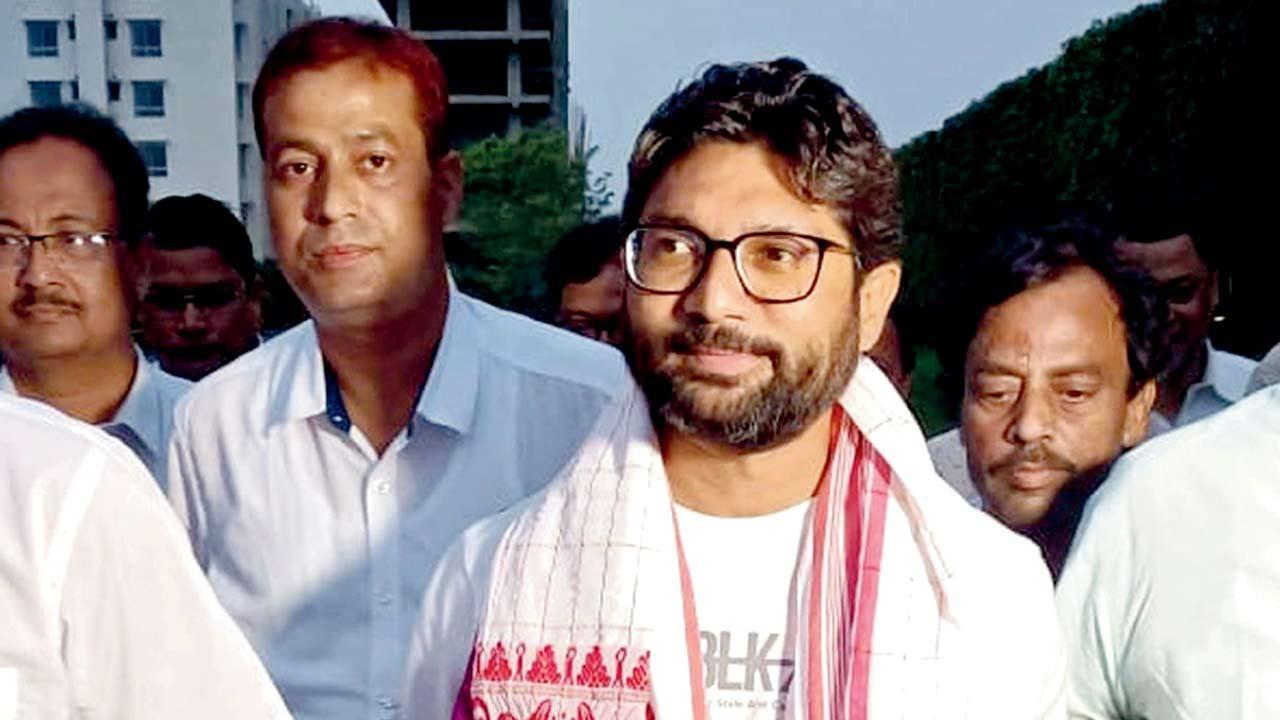We should all be Jignesh Mevani
Updated On: 02 May, 2022 07:27 AM IST | Mumbai | Ajaz Ashraf
Jignesh embodies the Constitutional idea of the ideal Indian—one who is more than just a sum of his identities and is wedded to the values of liberty, equality and fraternity. It is this Indian the BJP fears

Mevani after he was granted bail by a court in Kokrajhar on Saturday. Pic/ANI
 The grant of bail to Vadgam MLA Jignesh Mevani has not had Gujarat’s Dalits forget the message the Bharatiya Janata Party sought to convey to them through his arrest, and so, at the time of writing this piece on May 1, the 62nd foundation day of Gujarat, Dalits in over 1,100 villages were preparing to switch off electric lights between 9 pm and 9.15 pm, to protest the patently illegal arrest of Jignesh by the Assam Police.
The grant of bail to Vadgam MLA Jignesh Mevani has not had Gujarat’s Dalits forget the message the Bharatiya Janata Party sought to convey to them through his arrest, and so, at the time of writing this piece on May 1, the 62nd foundation day of Gujarat, Dalits in over 1,100 villages were preparing to switch off electric lights between 9 pm and 9.15 pm, to protest the patently illegal arrest of Jignesh by the Assam Police.
They were then to assemble together at a spot and read out, in the light of a kerosene lamp or candle, the Preamble of the Constitution, thus establishing a connection, even if fleeting, with the 2019-20 protest against the new citizenship law. Those 1,000 Dalit-ian Shaheen Baghs were to also take a pledge to abide by the Constitution, imbibe the constitutional values of liberty, equality and fraternity, and not be manipulated by caste and communal politics.



